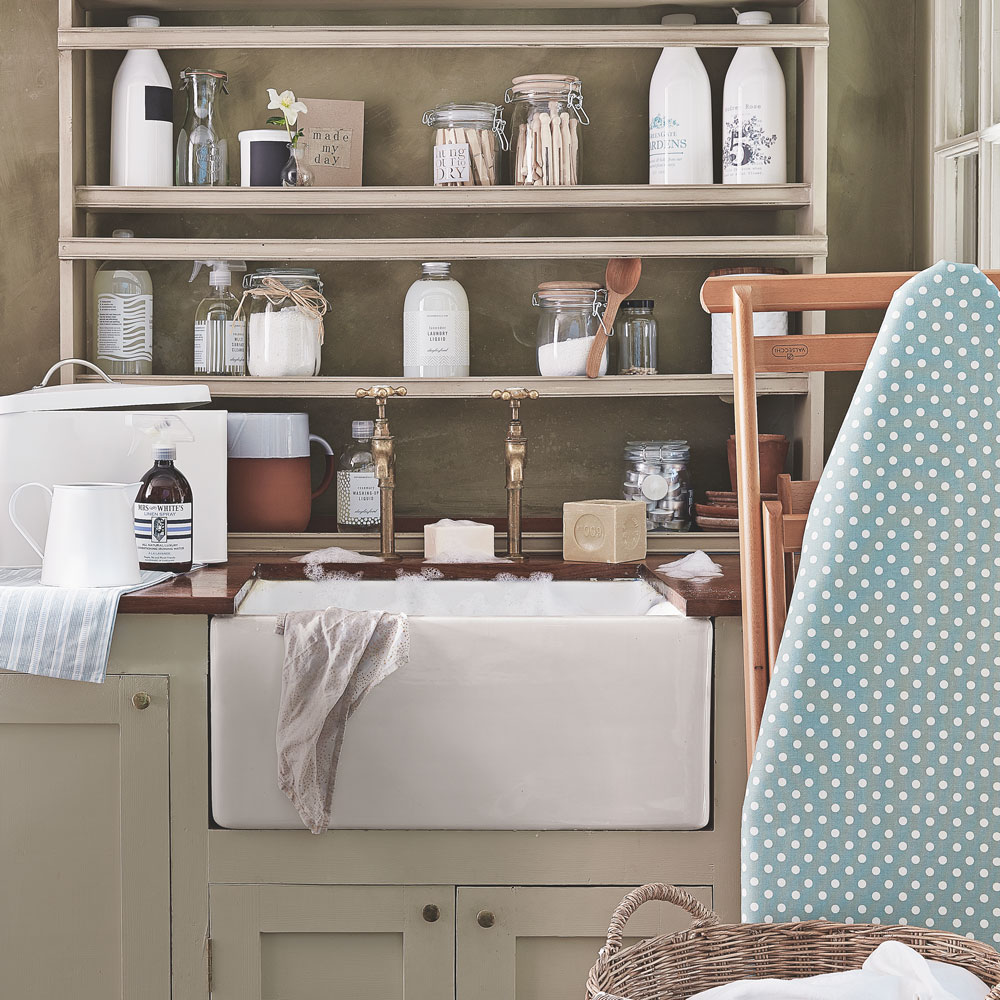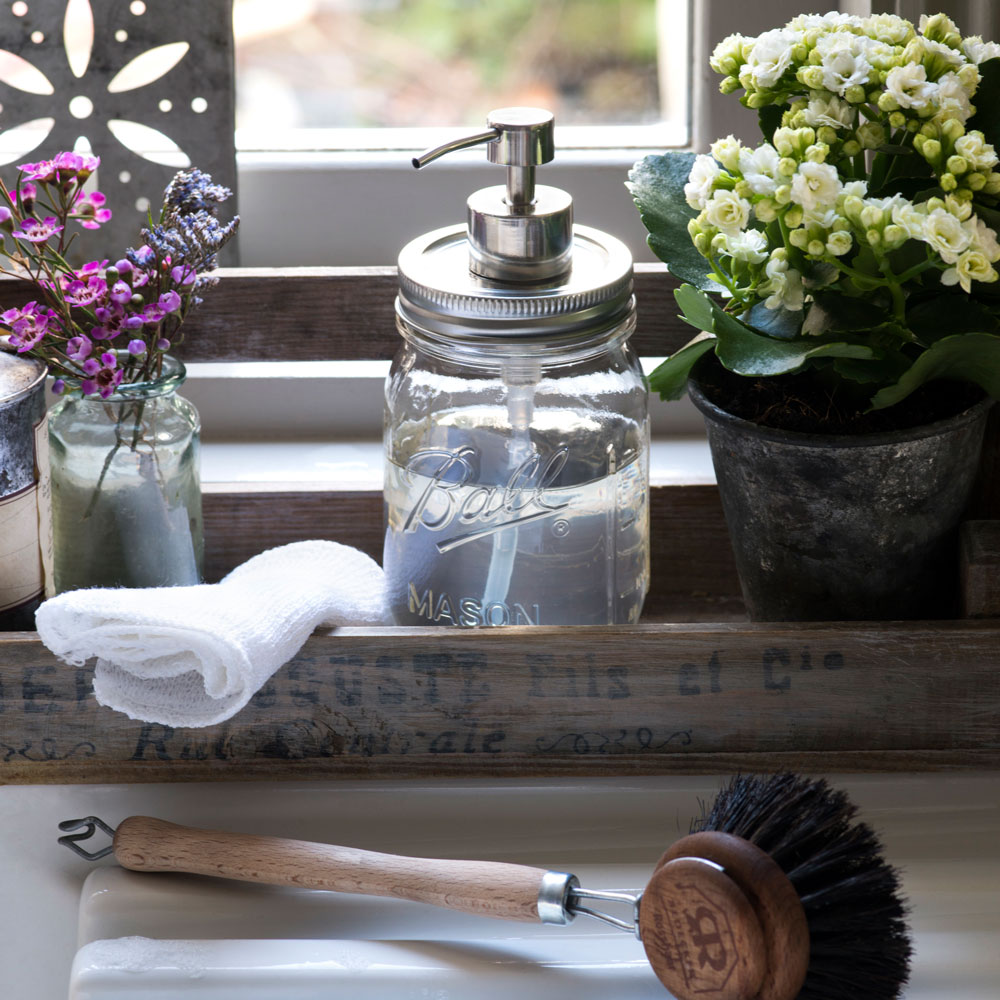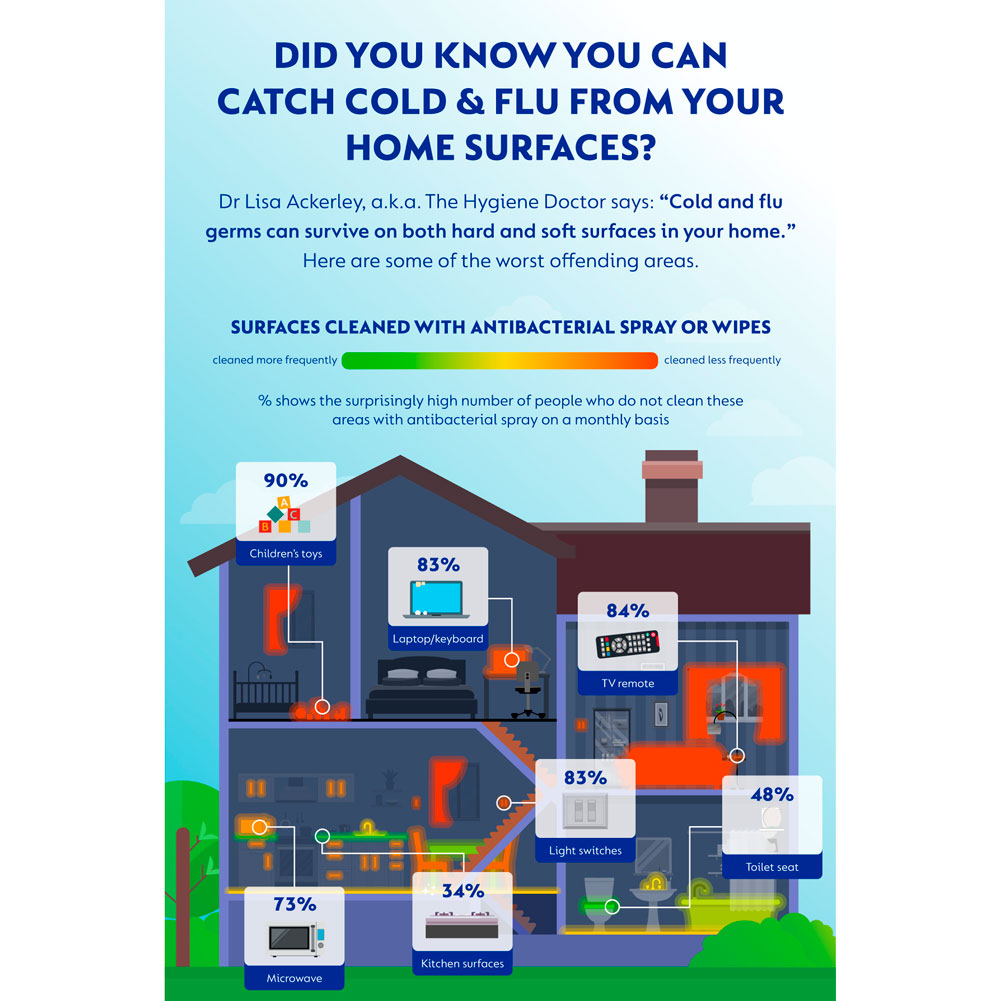Could we be risking illness by not cleaning our homes in the right way?
New research reveals how viruses can lurk in our homes, if left untouched
Sign up to our newsletter for style inspiration, real homes, project and garden advice and shopping know-how
You are now subscribed
Your newsletter sign-up was successful
New research reveals Brits could be risking illness by not cleaning homes thoroughly enough... or in the right way.
A study of 2,000 UK adults found the nation labours over tasks that tackle clear visible dust and dirt on surfaces, but leave viruses untouched.
More than a quarter will clean their homes with the ambition to make sure everything 'appears' clean and tidy. However, expert insight highlights how this could lead to virus-ridden homes as germs can remain on hard and soft surfaces for up to 48 hours – even after a daily dusting.
Cleaning hacks worth trying: 5 genius non-toxic pet cleaning hacks you can try today
New figures reveal on average UK adults catch between two and five colds a year, while children suffer up to eight.
Research commissioned by Dettol, found just 17 per cent say their main objective when cleaning is to rid their home of cold and flu viruses. Instead, three in 10 confessed to only cleaning when they can see visible dirt.

'The research has gleaned some interesting insights into the cleaning habits of the nation,' says Dr Lisa Ackerley, AKA The Hygiene Doctor.
Sign up to our newsletter for style inspiration, real homes, project and garden advice and shopping know-how
'Although it’s reassuring to see millions of Brits are in the habit of keeping their homes spick and span, the way they are doing it which might mean they aren’t actually as effective at reducing risks of illness as they think. Because the home may look clean, but it is not hygienic or disinfected at all.'
Lisa goes on to explain, 'Studies have shown that flu viruses can survive on common household sites for extended periods of time, from up to 48 hours on wooden surfaces, eight hours on cloths, and 24-48 hours on non-porous surfaces.'
'People may be surprised to learn that it is in fact hands and hand contact surfaces that can play a very important role in the journey of the germ. And that good hand hygiene together with regular disinfection of commonly touched surfaces can help to reduce transmission of colds and flu.'

Lisa continues by saying, 'Studies have also found household objects such as door handles, light switches, pens, tap and toilet handles, and television remote controls can become contaminated with viruses which are transmitted by dirty hands.' An unsavoury thought to touch upon perhaps.
'In addition, when people come home from travelling on public transport, or being with crowds, for example when shopping, then it is important to wash hands immediately upon coming into the home to prevent the transfer of viruses onto surfaces.'
The study also found the average adult will clean for an hour a week. However but one in six spend less than 20 minutes a week on household chores.
Of this time spent cleaning, 22 minutes are dedicated to vacuuming or sweeping. Just 14 minutes a week is allocated for wiping down kitchen surfaces with an antibacterial cloth.
A mere 13 per cent of Brits polled, via OnePoll, believe their home is the place where they or their family are most likely to interact with germs and viruses. Compared to 38 per cent who would expect it to be at school. While six in 10 think you’re most likely to come in contact with cold and flu viruses on public transport.

It also emerged around two fifths reckon the toilet is home to the most cold and flu viruses, compared to 33 per cent who anticipate kitchen surfaces to be the most contaminated.
As a result, more than half will regularly use an anti-bacterial cleaning spray on their toilet seat, with just two in five doing the same when cleaning the kitchen table.
Even fewer – one in four – will use an anti-bacterial spray on the door handles between rooms.
Through the Clean It, Kill It, Stop It campaign launching today, Dettol aims to educate the British public on how colds and flu are spread via touch where viruses may have been deposited.
Related: The eco-cleaning range Kirstie Allsopp recommends is currently 50 per cent off
Pat Cattini, president of the Infection Prevention Society says, 'We need to ensure that people understand surfaces and commonly touched items, like door handles and phones, can be contaminated with flu and cold viruses particularly in the colder months when transmission is more likely.'
'By ensuring we hygienically clean surfaces and commonly touched items in our homes and workplaces to reduce exposure to cold and flu viruses, we can all work together to help stop cold and flu before they spread this winter season.'
Tamara was Ideal Home's Digital Editor before joining the Woman & Home team in 2022. She has spent the last 15 years working with the style teams at Country Homes & Interiors and Ideal Home, both now at Future PLC. It’s with these award wining interiors teams that she's honed her skills and passion for shopping, styling and writing. Tamara is always ahead of the curve when it comes to interiors trends – and is great at seeking out designer dupes on the high street.